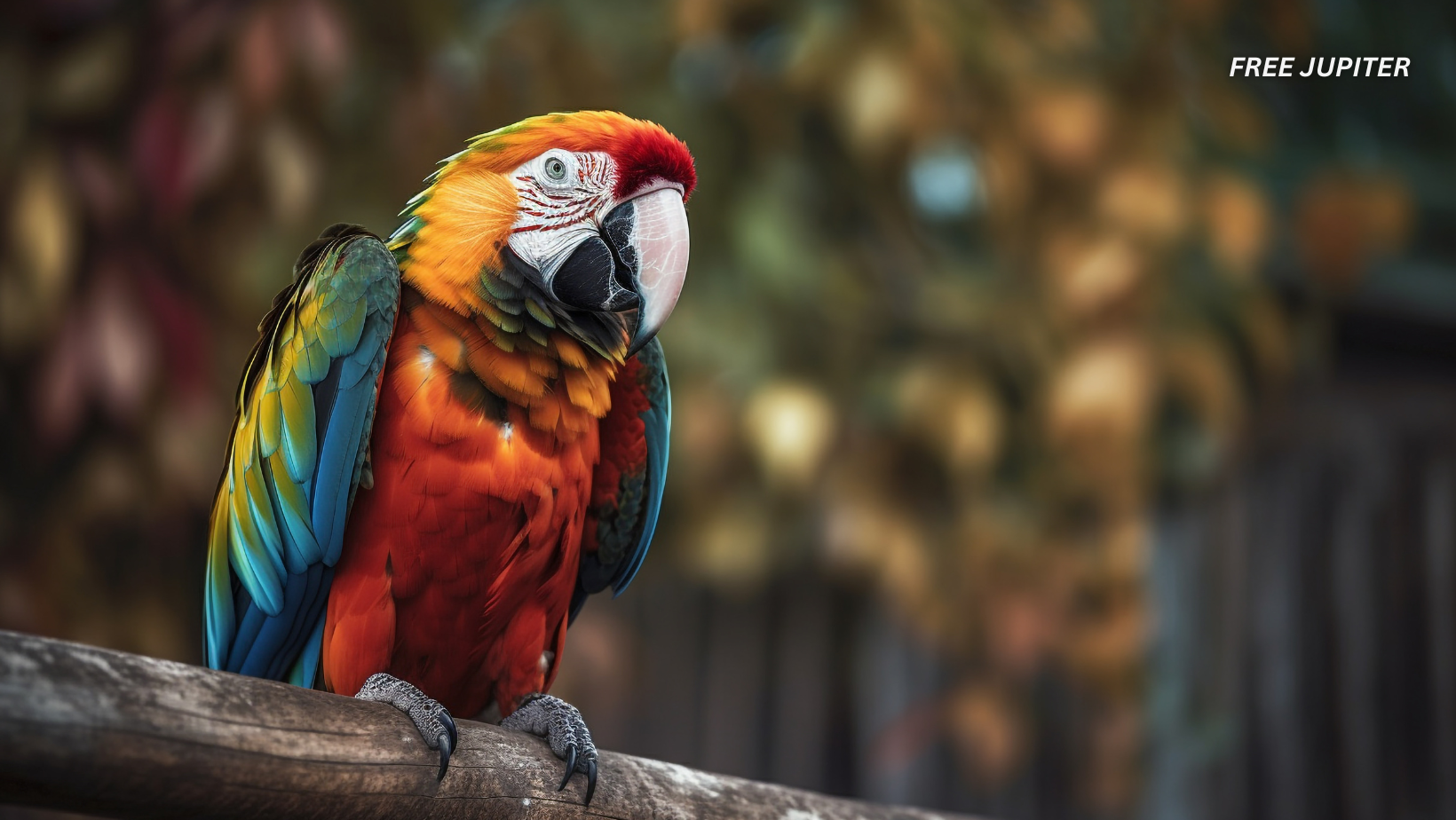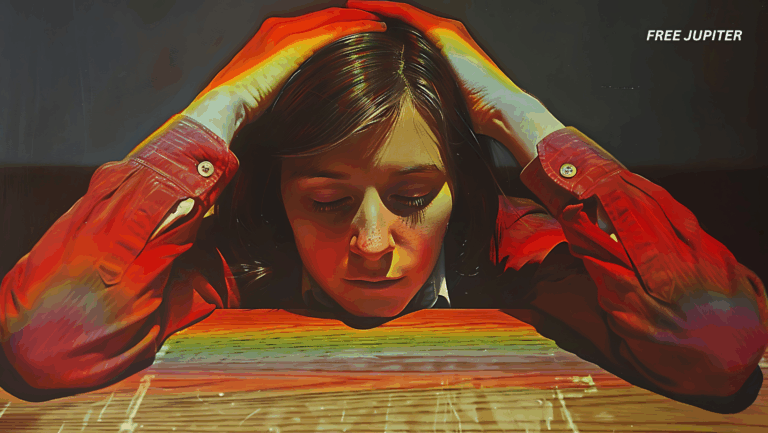Friendly Note: FreeJupiter.com shares general info for curious minds 🌟 Please fact-check all claims—and always check health matters with a professional 💙
Taking in a rescue animal is always a heartwarming act, but adopting a baby parrot? That’s a next-level kind of love—and a long-term commitment, too. Parrots like macaws, cockatoos, and African greys aren’t just pets for a season; they often live for decades, sometimes outliving their humans entirely.
So when someone brings one home, they’re signing up for a lifetime of feathers, squawks, and snuggles.
Jen and Her Feathered Family
One woman who’s all in on this kind of bird-filled lifestyle is Jen, a passionate parrot rescuer who runs @the_green_bird_brigade on TikTok. Her flock includes nine rescued parrots, each with its own charm—and now there’s a new kid on the perch: a baby macaw named Pyro.
Love at First Squawk
On June 10, Jen introduced little Pyro to her followers, and it was love at first squawk. Still adjusting to his new surroundings, Pyro seems to have one main priority in life: cuddles. Lots and lots of cuddles. Whether he’s snuggled up with Jen or hanging out with Dad, this fluffy ball of feathers is soaking in all the love he can get.
Bright Feathers and Big Personality
And it’s not hard to see why his human parents are smitten. Pyro is an absolute stunner. His colorful plumage looks like it was painted by a tropical sunset, and his affectionate personality only makes him more endearing. He may be small for a macaw, but to those unfamiliar with parrots, he’s still impressively large—especially for a baby.
Learning to Fly, One Flap at a Time
“He’s just a baby?” one viewer commented on TikTok. “I never realized how big they were. He’s very handsome!” Indeed, Pyro may still be young, but he’s got presence. He’s already sprouting his vivid adult feathers and is currently in what bird folks call the “fledgling” stage—that sweet spot where he’s learning how to fly, even if he’s not quite ready to soar.
To help Pyro grow strong and confident, Jen and her husband are gently guiding him through flying practice. For now, the bedroom serves as his training grounds, where he can test his wings safely without the risk of a crash landing. Like a toddler learning to walk, Pyro is figuring things out one flap at a time.
In Expert Hands
Though he’s still fluffier than feathery in places and a bit unsure of himself, he’s making steady progress thanks to the patience and expertise of his new family. Jen and her husband clearly know their stuff—they’re not just bird lovers, they’re seasoned caregivers who understand the unique needs of parrots like Pyro.
A Bright (and Snuggly) Future Ahead
Watching Pyro’s journey unfold is not only heartwarming but also a reminder of how deeply animals can bond with those who care for them. His cuddly nature, playful spirit, and growing confidence show just how much love—and time—it takes to help a rescued animal thrive.
For Pyro, this is just the beginning of a colorful and cozy adventure. With such a caring flock of humans and fellow birds around him, his future is looking bright (and likely very, very snuggly).
Why Parrots Make Lifelong Companions (And What You Should Know Before Bringing One Home)
Parrots are more than just colorful chatterboxes. Behind their stunning feathers and playful squawks lies a deeply emotional, intelligent, and loyal animal. But as adorable as videos of cuddly macaws like Pyro may seem, parrots aren’t your average pets—they’re more like winged toddlers with attitude… who never grow up.
Adopting a parrot isn’t a casual decision—it’s a commitment that can span generations. From their complex emotional needs to their surprising longevity, here’s everything you should know before welcoming a parrot into your flock.
1. They’re Not Pets—They’re Life Partners (with Feathers)
Macaws, African Greys, Amazons, and Cockatoos often live 40 to 80 years. That’s longer than many people stay married! This isn’t just a decade-long relationship—it’s a full-blown lifelong partnership. In fact, some parrot owners arrange care for their birds in their wills, because it’s very possible their feathered friend will outlive them.
Bringing home a parrot means planning for the long haul. It’s not just about giving them a perch and some seeds—it’s about being their family, their emotional support, and their personal chef, all in one.
2. They’re Smart—Like, Really Smart
Parrots rank among the smartest non-human animals on the planet. Studies show they have cognitive abilities similar to those of a 3 to 5-year-old child. They can solve puzzles, use tools, and even form simple sentences when trained with positive reinforcement.
That kind of brain power means they need stimulation. Constant stimulation. Toys, games, learning tricks, social interaction—you name it. A bored parrot is a loud parrot (or worse, a destructive one). Left alone too often, they might scream for attention or pull out their feathers from stress.
So if you’re thinking of getting a parrot because it looks cool sitting in a cage, think again. These birds want to play, learn, and be part of your life.
3. They’re Loud, Messy, and Hilarious
Let’s bust a myth: parrots aren’t quiet, tidy little companions who politely whisper, “Hello.” Nope. They can be loud enough to rival a fire alarm, toss food like they’re hosting a dinner party for pigeons, and drop feathers like it’s molting season every day.
But here’s the tradeoff: they’re hilarious, emotionally expressive, and capable of forming incredibly strong bonds with their humans. Some will dance when music plays, mimic your laughter, or randomly shout things you said weeks ago at the most inappropriate moments (like when guests are over).
If you’re the kind of person who enjoys a bit of chaos with your companionship, you’ll love their unpredictable charm.
4. They Crave Company (And Yes, That Might Mean You)
In the wild, parrots are never alone. They fly, feed, and sleep with their flock. At home, you become their flock. That means they’ll want to be around you constantly—on your shoulder, your keyboard, your head… anywhere you’re nearby.
Leaving them alone for long periods can cause emotional distress. Separation anxiety is real for parrots. Some even call for their owners by name or mimic the sounds of footsteps just to feel close to someone.
If your lifestyle doesn’t allow for regular interaction and quality bonding time, a parrot may not be the best fit. But if you’re home a lot, they can be your most affectionate (and feathered) sidekick.
5. Adoption vs. Buying—Why Rescue Matters
Many bird lovers, like Jen of @the_green_bird_brigade, choose to adopt parrots instead of buying them. That’s because the pet bird trade has a darker side—many birds are bred in poor conditions or are smuggled from the wild, causing trauma and environmental damage.
Rescuing a parrot from a shelter or sanctuary not only gives that bird a second chance, but it also helps fight back against unethical breeding practices. Plus, rescue parrots are often already socialized and may just need a little extra love to thrive.
Final Thoughts: Are You Ready for a Parrot?
If you’ve made it this far, and you’re still excited about the idea of living with a winged roommate who may outtalk you, outlive you, and steal your snacks—then you just might be parrot material.
Just remember: parrots are as emotionally rich and complex as any mammal, and they deserve the same level of care and attention. They’re not decorative pets—they’re companions, comedians, sometimes chaos-makers, and always full of personality.
So whether you’re just admiring baby Pyro from afar or thinking of starting your own flock, one thing’s for sure: parrots may come with challenges, but they also bring color, joy, and a whole lot of love.










